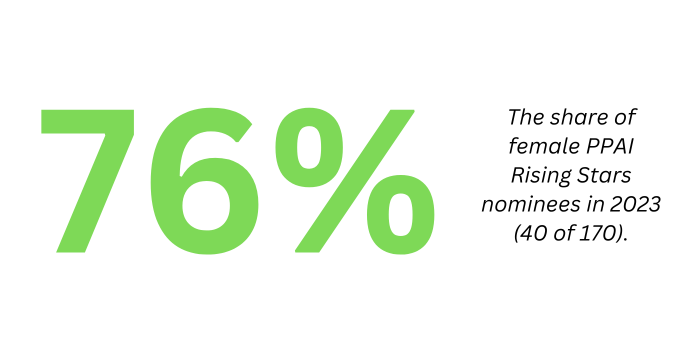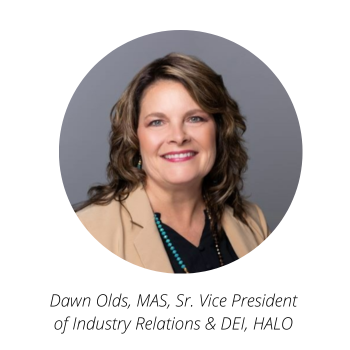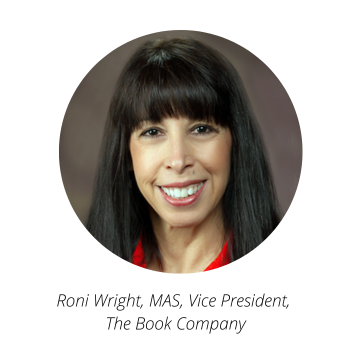Josh Ellis: Promo’s Future Is Female, And That’s A Good Thing

When it comes to demographics, small differences represent potentially huge outcomes.
Take, for example, the relatively narrow gap in viewership of The Simpsons between young men and women during the show’s early ’90s heyday. While only slightly fewer women and girls watched it than their male counterparts, that small difference may be an indicator of social change decades later.

It would be sexist to assume that millennial women spent evenings doing their homework and developing social skills by talking with friends rather than camping out in front of the TV to eat Doritos and watch The Simpsons in syndication.
But that was definitely the after-school routine of most of the boys I went to school with in the ’90s.
And it might go a long way to explaining the Bart-Lisa Divide we’re beginning to see in the U.S., where young women are now outpacing men in education, employment and health. Writ large, their gains are finally beginning to erode the gender pay gap.
Men are floundering at school and in the workplace. Some conservatives blame a crisis of masculinity, but the problems—and their solutions—are far more complex. https://t.co/rdVWaYQINY
— The New Yorker (@NewYorker) August 1, 2023
In the media, this is typically painted as a crisis for American men, and the stats bear out plenty of reasons for concern. But the other side of the coin is a triumph for women.
Let’s look at how this plays out in the promo industry, where it’s becoming clear that millennial and Gen Z women are the industry’s future.
Wednesday’s announcement of the 2023 PPAI Rising Stars is one sign. The women – their ages ranging from 27 to 39 – outnumbered the men nine to three. That wasn’t just happenstance, though. It’s the result of a trend.
Prior to Wednesday’s announcement, PPAI had named 172 Rising Stars since the program began in 2010, and most of them were men. In the first 10 years of the contest, men made up well above half of the group. In 2019, 13 of the 19 selections were men.
But the tide seems to have begun turning in 2020, when the 12 honorees were evenly divided: six in one hand, half a dozen in the other.
- In 2021, women outnumbered men eight to four.
- In 2022 there were seven women and five men on the list.
- The three-to-one ratio in favor of women among the 2023 Rising Stars is the most pronounced in the program’s history.
 Most striking of all, among the contest’s record 170 industry nominees this year, only 40 were men. And last year, women made up 68% of the nominees.
Most striking of all, among the contest’s record 170 industry nominees this year, only 40 were men. And last year, women made up 68% of the nominees.
Dawn Olds, MAS, immediate past board chair of PPAI and HALO's senior vice president of industry relations and DEI, considers the recent nomination statistics a product of concerted efforts within industry companies.
"Based on my own experience at HALO and in talking with members, I believe the prevalence of female nominees is more reflective of the emphasis firms have had on increasing diversity in their leadership teams. Programs to develop members of historically underrepresented groups must be working, since we are seeing more of them be recognized than we ever have before," Olds says.

The gender achievement gap is playing out not only in terms of superlative awards, but also among the people driving promo’s leading companies.
- At PPAI 100 suppliers, women make up 63% of the non-factory workforce.
- For PPAI 100 distributors, women make up 64% of the employees.
Let’s take a step back and consider how monumental a change this is for the promo industry, as male dominated as any during the 20th century.
The PPAI Hall of Fame launched in 1977 and didn’t welcome its first female, Ann Morrissey-Roelfs, CAS, until 1988. Of the 93 icons who have earned a place in the Hall of Fame, only 11 have been women (and four of the last five, at that). Carol Aastad, MAS, and Mary Ellen Sokalski, MAS, were enshrined this year, the 2023 class marking the first time two women were inducted together.
It’s inspiring how the women trailblazers of the industry, including those 11 in the PPAI Hall of Fame, have played an active role in helping advance the growth of women coming after them. One of those women is 2020 Hall of Fame inductee Roni Wright, MAS, who says young women today don’t face the same social stigmas that were apparent when she first became involved in the industry.
“Now women who have broken boundaries are encouraging the next generations of younger women in all aspects of business – networking, mentoring, education and growth opportunities,” Wright says. “Most women that I know feel they have had to work harder to achieve their goals and dreams, and with that achievement feel responsible to push (and pull) others forward.”

As the father of two daughters, I’m thrilled that the outlook for young women in promo and other industries is bright. But I also look back on the societal structure for thousands of past generations with regret. Because it’s a shame for all of us living today that half of the population was not given the same full opportunity to contribute.
Not only as an industry, but as a species, we have too long been working with one hand tied behind our back.
Hopefully, the change we are seeing in promotional products and elsewhere is not an anomalous blip, but a societal shift that will unlock a greater future for all of our children, regardless of gender.
To borrow a phrase from Kent Brockman, I for one, welcome our new female overlords.

